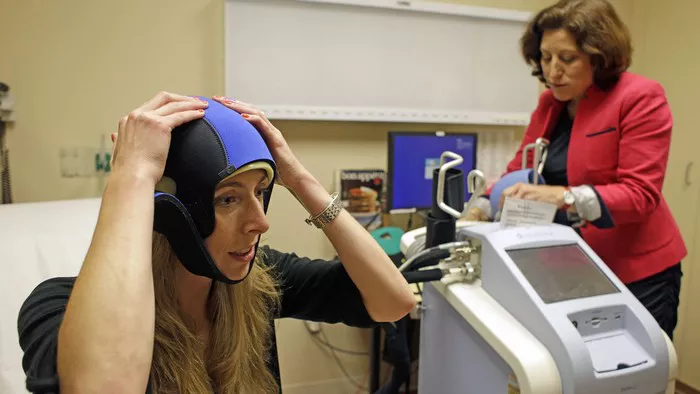A study by Samsung Medical Center’s Hematology Oncology Department has confirmed that cooling caps can help prevent hair loss in cancer patients undergoing chemotherapy.
Hair loss in cancer patients is caused by chemotherapy drugs that destroy hair follicles and skin cells. Drugs such as cyclophosphamide, docetaxel, doxorubicin, epirubicin, and paclitaxel, commonly used in treating breast and gynecological cancers, are particularly known to induce hair loss.
Managing the side effects and cosmetic changes in cancer patients has traditionally been seen as a secondary concern. However, many cancer patients experience significant stress due to changes in their appearance, with more than half facing social and domestic challenges as a result.
Patients are often told their hair will recover within six months after chemotherapy. However, a previous study by the same research team found that 42.3 percent of breast cancer patients did not regain their pre-chemotherapy hair condition even three years post-treatment.
In response, Professors Ahn Jin-Seok of the Department of Hematology-Oncology, Cho Ju-hee, and Kang Dan-bee of the Department of Clinical Research Design and Evaluation conducted research to investigate the use of cooling caps in accelerating hair growth for chemotherapy patients.
Previous studies have shown that wearing a cooling cap constricts blood vessels, slowing blood flow to the scalp, and reducing the impact of chemotherapy drugs on hair follicle cells, thereby preventing hair loss. While cooling caps do not completely prevent hair loss, they protect critical cells, leading to healthier hair regrowth compared to those who did not use the caps.
The team conducted a randomized controlled trial with 139 breast cancer patients, stages 1-3, between Dec. 23, 2020, and Aug. 27, 2021. Patients were divided into a cooling cap group (89 patients) and a control group (50 patients), with all other clinical conditions kept the same. The team compared persistent hair loss, hair quantity and thickness, and stress levels between the two groups.
Patients wore the cap for 30 minutes before and 90 minutes after chemotherapy. To ensure accuracy, patients were advised not to shave their heads during the study period. As a result, the team confirmed that persistent hair loss, defined as a failure to regain pre-chemotherapy hair quantity or thickness six months post-treatment, was observed in 52 percent of the control group but only 13.5 percent of the cooling cap group.
The control group’s hair thickness decreased by 7.5μm six months after treatment, while it increased by 1.5μm in the cooling cap group. The difference in hair thickness between the two groups was 9.1μm after treatment. Six months post-chemotherapy, fewer patients in the cooling cap group wore wigs to conceal hair loss (17 percent) compared to the control group (32 percent). Patients using cooling caps also reported significantly lower stress levels related to hair loss.


